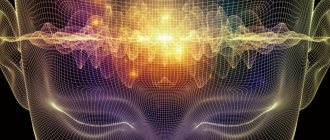The uniqueness of a person is determined not only by his inner world, but also by the totality of personality qualities that influence the individual’s attitude towards life and the people around him. To realize the uniqueness of each inhabitant of the Earth, it is necessary not only to know how personality traits are understood in psychology, but also to be able to notice the main individual psychological characteristics of a person.
Personality traits
Personality traits and character structure
Each individual during his life acquires a unique set of qualities, which are called character traits. On their basis, the formation of a personality structure is carried out, which determines a person’s actions and behavior. To better understand the nature of personality and character development, it is necessary to study the variety of definitions of these terms.
Concept and definition in psychology
The concept of personality allows us to reflect the social nature of the individual - the owner of a special consciousness. In psychology, this term refers to a whole system of human properties, the manifestation of which occurs exclusively in activity.
Additional Information. R. Cattell believes that thanks to the concept of “personality” it is possible to characterize a person’s behavior in a given situation.
A personality trait in psychology is nothing more than a stable feature of an individual, which manifests itself in his actions. By personality traits, G. Allport understood unique psychological blocks that help combine a person’s reaction into a single stimulus.
Character Structure
Personality properties form character, which means that it consists of a set of individual characteristics of an individual that determine a person’s behavior.
Is a person a person?
Man is a creature that arose as a result of evolution, capable of living in society and conducting socio-historical activities. A person is constantly studying and changing the world around him, developing culture and building his own life.
Various sciences study the origin, development, and purpose of man in the world: religion, philosophy, psychology, biology.
Each person is an individual who has his own idea of the world, society, culture and activity.
Basic character traits
Personality orientation - what is it in psychology, its types
Character makes a person unique and helps to stand out from the crowd. Any individual is characterized by the desire to be accepted by society, to become part of a team, family or social group.
Additional Information. Nobody wants to be an outcast. Therefore, the need to be around other people is a natural human need.
To become a part of any society, an individual must not only perform useful functions, but also have a certain character. Knowing which hypothetical traits are welcomed in a group and which are rejected, it will be much easier to build communication with people.
Negative traits
Negative personality traits do not lead an individual to positive results. Negative manifestations of character are condemned in society. Among the main negative character traits, the following options can be distinguished:
- selfishness;
- greed;
- pettiness;
- envy;
- malice;
- deceit;
- self-criticism;
- cowardice;
- laziness;
- stubbornness.
Each of these properties can be diagnosed differently in people. In some people you can find the whole “set” of negative traits, in others you can find several of the most unpleasant “instances”.
How to overcome negative character traits
Important! Some negative qualities can be transformed into positive ones if a person works on himself.
Example: a greedy person can become thrifty, a stubborn person can become goal-oriented, a self-critical person can become creative, and a lazy student can become painstaking.
Positive features
Positive personality traits enable an individual to be useful, reliable, and valuable in society. Each era has its own list of socially significant character traits:
- If ideas focused on individual success are promoted in society, then hard work, initiative, determination, self-sufficiency and independence will be important positive personality traits;
- If collectivism is the main value of society, then individualism will be condemned and rejected in it. Qualities such as loyalty, friendliness, and stress resistance will be represented on the “pedestal.”
Despite this, there is a number of universal human values, among which the following positive features can be distinguished:
- loyalty;
- generosity;
- justice;
- modesty;
- goodwill;
- reliability;
- honesty;
- politeness;
- sense of responsibility;
- determination;
- hard work.
Some positive properties can transform into negative ones. For example, a person cannot always trace the moment when perseverance becomes stubbornness, determination transforms into aggression, and a tolerant individual becomes susceptible to the opinions of others.
Important! To analyze the presence of positive and negative character traits, you need to pay attention to the attitude of others towards the individual.
The attitude of others is the key to self-improvement
Society is a kind of mirror that reflects the real appearance of an individual.
Personality traits
Personality properties include some phenomena that determine a person’s life activity and reveal his socio-psychological qualities. Psychologists refer to personality traits as such concepts as temperament, character, abilities, will, motivation and emotions.
Scientists consider abilities to be one of the key personality traits. For example, all people learn differently, and everyone has their own results of work or creative activity.
Abilities, according to psychologists, are rarely associated with knowledge and skills, but they qualitatively influence all processes of learning and development. There are some types of abilities:
- elementary or simplest, which are associated with the senses, movement and are innate;
- complex or socially conditioned, which are associated with certain areas: music, art, mathematics;
- general (motor, mental) - those that, in principle, all people have, but the level of their development is individual for everyone. This type of ability affects the level of a person’s achievements in the field of sports, scientific Olympiads and intellectual competitions;
- special abilities, the development of which requires a special inclination - artistic, musical, mathematical, acting. This explains the fact why, for example, some students in art schools draw better than others (the existing inclinations for art allow the skills to develop faster);
- theoretical and practical, allowing you to correctly set tasks, goals and take actions to achieve them;
- educational – contributing to the achievement of success in learning; creative, allowing you to create works in the field of art and spiritual culture;
- communicative. They are associated with the ability to establish contacts and interact in society, develop interpersonal relationships;
- subject-activity, relating to the interaction of a person and an inanimate object.
Individual ability levels are assessed in three degrees: giftedness, talent and genius. The process of developing abilities is strongly influenced by the type of temperament identified in a person.
Melancholic people, for example, have an increased level of anxiety and react painfully to criticism, and are prone to apathy and depression.
Cholerics are quick-tempered and impulsive, capable of quickly losing their temper and also quickly calming down.
Phlegmatic people are calm and balanced, they know how to do their work well and efficiently, but they have difficulty getting used to everything new.
Sanguine people (for the most part) are strong and optimistic people who know how to see positive qualities in everything.
Individual character traits
Special psychology - what is it?
Individual psychological traits that characterize personality are studied by differential psychology and criminology. The dynamic structure of human characteristics includes 4 main groups:
- biological traits: inclinations, temperament, primary needs;
- social properties of the individual: worldview, moral qualities, orientation;
- individual abilities: talent, giftedness or genius;
- experience: skills, abilities, habits and knowledge.
It must be taken into account that not all individual characteristics of an individual can become character traits.
Inclinations and abilities
Important! All character traits relate to personality traits. This fact occupies a special place in criminological practice.
Thanks to individual psychological traits, a person is able to achieve success and improve in activities.
Psychology of Personality
Personality psychology studies directly a person, his personality and behavior. The definition of personality has several interpretations; psychology identifies various theories, concepts and hypotheses on this topic. Five personality theories are considered the most popular:
- Psychodynamic. Its main points were formulated by Sigmund Freud within the framework of classical psychoanalysis. He considered the main developing factor to be human instincts associated with life and death. Freud assigned an important place in personality development to sexual needs (libido). According to his theory, a person can go through the levels of personality development “it”, “I”, “super-ego”.
Strong-willed traits of people
Business communication - types, rules and culture of speech, how to develop skills
To achieve goals, an individual needs the ability to mobilize his own psyche. Willpower is the foundation of this skill.
Note! The volitional qualities of a person are not always innate. Often an individual has to train them on his own. It takes a lot of time to learn. The main thing is that training should be repeated periodically even after obtaining good results.
How will is formed
There are many methods for studying the volitional properties of a subject. The most common are:
- test N.N. Obozov “Self-esteem of willpower”;
- observation method A.I. Vysotsky;
- general assessment of will in adolescents according to N.E. Istanbulova.
Human volitional traits are divided into 2 types:
- moral;
- extraordinary.
The second type of qualities is the basis for improving the moral side of a person. Among the main volitional traits of an individual are:
- Energy. Thanks to this property, a person is able to act quickly and make responsible decisions.
- Self-control. This strong-willed quality protects the individual from impulsive and rash actions. With self-control, the subject is his own leader.
- Courage. Allows a person to overcome internal fears and fears.
- Patience. With the help of this volitional effort, the individual is able to achieve his goals, despite the presence of internal obstacles: fatigue, boredom, headache.
- Initiative. Thanks to this quality, a person is able to show mental activity, creativity and independence to achieve better performance results.
- Strategic. Allows a person to correctly set priorities not only in his personal life, but also in the business sphere.
- Determination. This strong-willed trait helps the individual to consciously set himself the necessary tasks and actively act to achieve them.
- Integrity. A strong-willed trait allows an individual in any field to be based on his own views, and not follow the lead of other people.
Strong personality: examples of world famous people
Strong personality: what examples are known? History knows many people who turned the course of development of countries, influenced the development of socio-economic and cultural processes.
- Genghis Khan. A man of iron grip and strict discipline. Only thanks to his personal qualities was he able to conquer many states and create a powerful empire.
- Napoleon Bonaparte. A man who does not have outstanding external characteristics, but through perseverance and purposeful actions achieved the strengthening of France on the world stage and the conquest of many states.
- Peter I. The Russian emperor, who managed to introduce many innovations in Russia. Hard work, discipline, and adherence to principles in state matters and affairs allowed Pyotr Alekseevich to make Russia a strong world power, to conquer strategic access to the seas and to subjugate a number of foreign border cities. Under Peter the Great, the Russian army and navy received worldwide recognition.
- Catherine II. A German princess who managed not only to take the throne of the empress, but also to bring Russia forward economically at the global level. Having fallen in love with a foreign country and people, Ekaterina Alekseevna entered Russian history as the Great Empress.
- Nick Vujicic - a person with a complex disease, without limbs, but who managed to achieve a lot in life. Nick is the author of books on self-improvement, an excellent speaker and business coach, occupying the top lines of the rating of successful people of our time.
- Vladimir Putin – one of the strongest figures in world politics.
Discipline, self-analysis and self-development are the main qualities that influence the formation of personality. Strong individuals are able to change their lives for the better; they know what they want and systematically act towards their goal.
The relationship between character and personality structure
Character is a kind of “foundation”, which, together with abilities and emotions, forms the structure of the personality.
How are these two concepts related?
The close relationship between a person’s mental properties and the main components of the psyche is achieved thanks to the following characteristics:
- By character, you can not only assess the integrity of a person, but also predict or correct actions.
- The orientation of an individual is closely related to his mental properties, and therefore influences the activities of the individual.
- Character formation occurs during the active actions of the subject. In other words, mental properties are determined by the existence of the individual.
- All character traits are interconnected with each other. Thanks to constant interaction, they form a holistic personality structure.
- The character of an individual prevents or helps the subject to build various relationships with society, solve complex life problems, and show will and patience.
In order to fully study the distinctive characteristics of a person, you need to “eat” a whole pound of salt with him. However, the uniqueness of the character can be noted, if not at first, then certainly at second glance. Even if an individual is withdrawn and shy, these properties will characterize the manifestation of his character. If a subject wants to correct his own qualities, a professional psychologist can come to the rescue.
Individuality is a distinctive feature of a person
Individuality is a set of human characteristics, qualities inherent in an individual person. The development of individuality is influenced by the family in which a person is raised, traditions and habits, relationships with parents, and worldview.
The manifestation of individuality is possible through appearance (manner of dressing, dyeing and styling hair, applying makeup, wearing jewelry, etc.), behavior, character, temperament.
Video
Coffee capsule Nescafe Dolce Gusto Chocochino, 3 packs of 16 capsules
1305 ₽ More details
Hot chocolate capsules Nescafe Dolce Gusto Chococino, 8 servings
334 ₽ More details
Gardena hose trolleys
There are 5 types of conflicting personalities:
Types of conflicting personalities
Demonstrative. Behavioral characteristics:
- Wants to be the center of attention
- Likes to look good
- Attitude towards people is determined by how they treat him
- Superficial conflicts are easy
- Admires his suffering and resilience
- Adapts well to different situations
- Rational behavior is weakly expressed
- Emotional behavior
- Activity planning is carried out situationally and poorly implemented
- Avoids painstaking and systematic work
- Doesn't avoid conflicts
- Feels good in a situation of conflict interaction
Demonstrative personality type
Rigid. Behavioral characteristics
Suspicious. Straightforward and inflexible. Has high self-esteem. Constantly requires confirmation of one's own importance. Often does not take into account changes in situation and circumstances. With great difficulty he accepts the point of view of others and does not really take their opinions into account. Expressions of hostility on the part of others are perceived as an insult. Uncritical of his actions. Painfully touchy, hypersensitive to imaginary or real injustices.
Rigid personality type
Ungovernable. Behavioral characteristics
Impulsive, lacks self-control. Characterized by poorly predictable behavior, often behaves defiantly and aggressively. May not pay attention to generally accepted norms of communication. Characterized by a high level of aspirations. Not self-critical. He tends to blame others for failures and troubles. Cannot plan activities competently and consistently implement plans. The ability to correlate one’s actions with goals and circumstances is not sufficiently developed. Few lessons are learned from past experiences.
Uncontrollable personality type
Ultra-precise. Behavioral characteristics
He is meticulous about his work. Makes increased demands on himself and others, creating the impression of nagging. Has increased anxiety. Overly sensitive to details. Tends to attach undue importance to the comments of others. May break off relationships with friends due to perceived resentment. He suffers from himself, experiences his own miscalculations, failures, sometimes paying with illnesses (insomnia, headaches, etc.). Restrained in external, especially emotional, manifestations. Has little sense of real relationships in the group.
Super accurate personality type
Conflict-free. Behavioral characteristics
Unstable assessment in opinions. Internally contradictory. Has easy suggestibility. Depends on the opinions of others. There is some inconsistency in behavior. Focuses on immediate success in situations. Doesn't see the future well enough. Excessively strives for compromise. Doesn't have enough willpower. Almost does not think about the causes and consequences of the actions of both his own and those around him.
Conflict-free personality type











